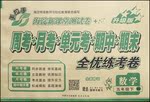题目内容
The following are the world-renewed attractions(迷人地方) in London, so don’t miss them while touring there.
Shakespeare’s Globe
Shakespeare’s Globe, which officially opened in 1997, is a reconstruction of the Globe Theatre, built in 1599, and brings Shakespeare’s world to life. As a visitor to the exhibition you’ll discover how shows were produced in the theatres during Shakespeare’s time. The guide-storytellers take you on a fascinating half-hour tour.
Price: Adult £9.00;Child(5-15) £6.50; Student £7.50; Under 5 FREE.
The Tower of London
The tower, nearly 100 feet high, with walls 15 feet thick, was built in the early 1080s. King Henry Ⅲ made this tower his home. King Edward V and his
younger brother were murdered inside by their uncle. Queen Elizabeth I was shut up in the tower for two months by her half sister Mary who felt that her throne(王位)was being threatened(威胁). In 1603, part of the tower became a museum.
Price: Adult £16.50; Child (5-15) £9.50; Under 5 FREE; Student £13.50; Family (two adults with three children) £46.00.
Banqueting(宴会) House
Banqueting House is the remains of Whitehall Palace which was built in 1529 and was home to the English kings. It was destroyed by fire. Famous for its architecture and painting, the building is also known for being the scene(地点) of Charles I’s execution(处决)。
Price: Adult £4.50; Child £2.25; Student (with ID) and senior citizen (60+) £3.00; Under 5 FREE.
Tower Bridge Exhibition
Tower Bridge has stood over the River Thames in London since 1894 and is one of the finest, most recognizable bridges in the world. At the Tower Bridge Exhibition you can enjoy breath-taking views from the high-level walkways and learn about the history of the bridge and how it was built. You can then visit the Victorian engine rooms, home to the original steam engines that used to power the bridge.
Price: Adult£6.00; Child (5-15) £3.00; Under 5 FREE; Senior citizen(60+) £4.50; Student£4.50.
1. Which of the following places has the longest history?
A. Whitehall Palace. B. The Globe Theatre.
C. The Tower of London. D. Tower Bridge.
2. If two parents with their 4-year-old son visit the Tower of London, they should pay .
A. £33 B. £43 C. £46 D. £52
3. Queen Elizabeth I was shut up in the tower for two months by Mary mainly because .
A. Mary didn’t like her ]
B. she tried to steal Mary’s treasure
C. Mary feared she would become the Queen
D. she intended to murder Mary
4. How many places used as a king’s home are mentioned in this passage?
A. One. B. Two. C. Three. D. Four.
C
A
C
B
【解析】略

 手拉手全优练考卷系列答案
手拉手全优练考卷系列答案